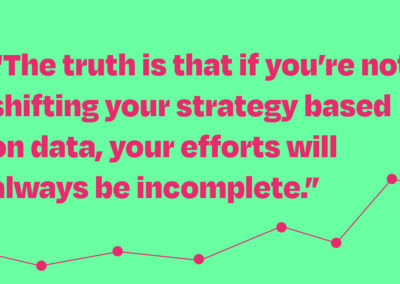This article will explore how to manage a disability in the workplace, with a focus on understanding one’s condition and setting work goals. The importance of understanding one’s condition is paramount for managing disabilities effectively. This article will discuss the benefits of knowing the condition and its likely progression, as well as effective treatments or management protocols. Additionally, this article will discuss how to set weekly goals in order to achieve work without compromising health, controlling work flow to achieve personal goals, and having patience while managing a disability. Finally, this article will use the example of a disabled freelance writer working from home to demonstrate how disabilities can lead to unexpected accomplishments.
Understanding One’s Condition
Having a disability can be overwhelming, and it is important to understand one’s condition in order to effectively manage it. Knowing the condition and how it is likely to progress will help in developing an effective treatment or management protocol. It is also beneficial to establish a routine that includes regular check-ups with a doctor and physical therapist, as well as other necessary treatments or activities that are part of managing the disability.
Effective Treatments or Management Protocols
Developing an effective treatment or management protocol requires understanding the progression of the disability and its symptoms. This could include medications, therapies, lifestyle changes, dietary modifications, exercise programs, and other interventions that have been found to be helpful in managing the disability. In some cases, these protocols may need to be adjusted over time as the condition progresses.
Benefits of Establishing a Routine
Establishing a routine can help provide structure and consistency for those living with disabilities. A routine can involve regular check-ups with doctors and physical therapists, as well as other activities such as exercise programs or dietary modifications that may be part of one’s management plan. Additionally, having a routine can help reduce stress levels by providing predictability in one’s daily life. Establishing a routine also allows for more flexibility on good days versus bad days, which can help manage fatigue levels associated with certain disabilities. Finally, having a consistent schedule can help individuals stay on track with their goals and objectives while living with their disability. This could include setting weekly goals for work without compromising one’s health, controlling the work flow to achieve personal goals, having patience when needed to successfully manage the disability, and recognizing how disabilities can lead to unexpected accomplishments. For example, many disabled freelance writers are now able to work from home due to advances in technology that allow them to do so without compromising their health or safety.
Setting work goals to manage disability: flexible routine, weekly goals, controlling work flow, patience, unexpected accomplishments.
Setting Work Goals
When a person has a disability, it can be difficult to manage the condition while also working. It is important to understand one’s condition and set work goals that will help them manage their disability. This can include setting up a flexible routine for good days and bad days, controlling work flow to achieve personal goals, and having patience to successfully manage their disability.
Flexible Routine for Good Days and Bad Days
Creating a flexible routine is key in managing disabilities. On good days when energy levels are higher and symptoms are less severe, more work can be accomplished. However, on bad days when symptoms are more severe, it is important to have a plan in place that allows for rest and recovery without compromising the work that needs to be done. Having an understanding of the condition will help in creating an effective plan for both good days and bad days.
Setting Weekly Goals
Setting weekly goals will help in managing the workload while also managing the disability. Having short-term goals makes it easier to stay focused on what needs to be done without becoming overwhelmed with too much work at once. It also allows for flexibility when there are unexpected changes due to health issues or other circumstances.
Controlling Work Flow
Managing disabilities involves controlling the work flow so that personal goals can be achieved without compromising health. Working from home or having flexible hours can make this easier as it eliminates the need for commuting and being around large groups of people which can lead to increased stress levels or fatigue. Working smarter rather than harder is essential in achieving success while managing disabilities.
Patience Needed
Having patience is key in successfully managing disabilities as there may be times when progress isn’t made as quickly as expected or desired. It is important to remember that everyone progresses at different rates and setbacks should not discourage someone from continuing towards their goal. Instead, it should motivate them to keep going despite any obstacles they may face along the way.
Unexpected Accomplishments
Disabilities can sometimes lead to unexpected accomplishments as well as challenges that must be faced head-on in order to succeed. For example, a freelance writer with a disability may find that working from home allows them more freedom and flexibility than if they had been working in an office setting due to their physical limitations. This could open up new opportunities that would not have otherwise been available had they not faced their disability head-on and pursued their career goals despite any obstacles they encountered along the way.
Conclusion: Disabled Freelance Writer Working From Home As Example
In conclusion, understanding one’s condition, setting work goals, and managing disabilities are all important aspects of successfully living with a disability. A disabled freelance writer working from home is just one example of how someone with a disability can still achieve success by facing their challenges head-on and striving towards their goals despite any obstacles they may encounter along the way.
Conclusion
The importance of understanding one’s condition and setting work goals to manage disabilities cannot be overstated. Knowing the condition and how it is likely to progress, as well as effective treatments or management protocols, can help an individual develop a flexible routine for good days and bad days. Setting weekly goals to achieve work without compromising health, controlling work flow to achieve personal goals, and having patience are all key components in successfully managing disability. Disabilities can lead to unexpected accomplishments, as seen with the disabled freelance writer working from home as an example. This article has provided an overview of understanding one’s condition and setting work goals in order to manage disabilities. Understanding one’s condition is necessary for developing a routine that works best for them, while setting work goals helps individuals stay on track and achieve their desired results without compromising their health. With patience and dedication, anyone with a disability can find success in their professional life.






